Chickens are masterful at keeping themselves clean. They’ll preen, fluff, and even bathe themselves to keep their plumage vibrant and free of parasites and debris. Occasionally, they may need a helping hand from their humans, but bathing a chicken should only be a last resort. Learn how to keep chickens clean, and when intervention may be warranted.
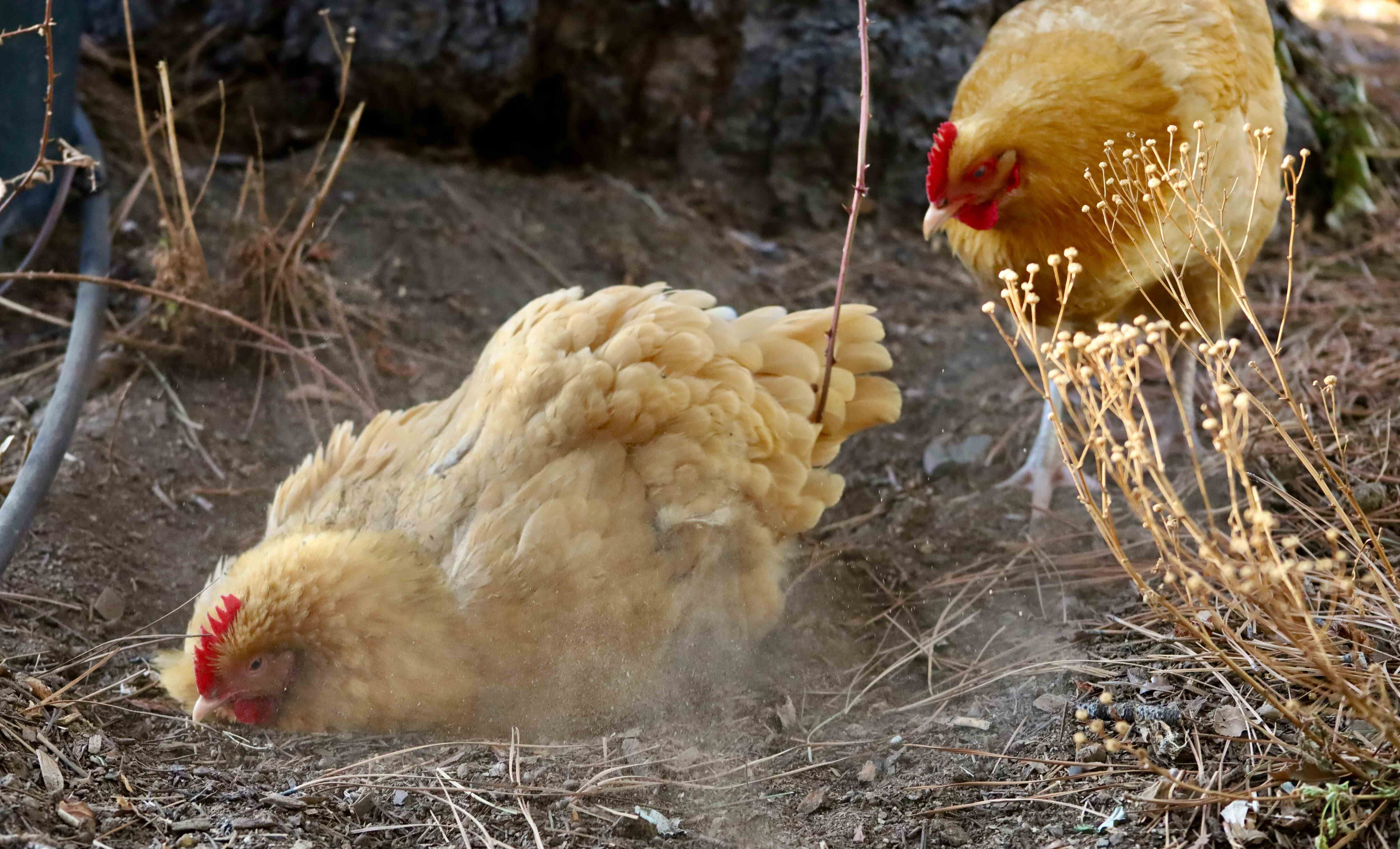
Chickens will naturally bathe themselves in dust to prevent parasites and keep themselves clean.
How chickens keep clean
As counterintuitive as it may sound, chickens bathe in dust to keep themselves clean. You should always have a prepared dust bath for your chickens, made from soil, herbs, diatomaceous earth, and other natural ingredients. Dust baths can be mixed and poured into a deep container, such as a livestock feeding bin or trough, or created directly in the ground if your soil is compatible.
Hens will usually dust bathe in pairs, as it’s a social activity as well as part of their hygiene routine. You’ll notice hens dig around in the dust, then plop down on their bellies and begin tossing dust up onto their backs using their wings. They’ll then turn on each of their sides and repeat this process until they are sufficiently coated. Then they’ll pop up, ruffle their feathers, and begin.
Chickens will also preen, or pick through their feathers, with their beaks. They’ll find and eat any insects that have hitched a ride on them, and will remove debris from their plumage. This allows their feathers to lay properly, ensuring their natural insulating and cooling systems are in working order.
Create a clean environment
Having an easy to clean chicken coop is instrumental in keeping their environment sanitary. Chickens spend anywhere from 8-12 hours in the chicken coop at a time, so there will be lots of droppings to clean out on a regular basis. Chicken coops should be scrubbed and sprayed down every month to keep them fresh, and the bedding in the droppings tray should be replaced at least once a week. In addition to the main area of the coop, you’ll need to keep your hens’ run clean, as well as their nesting areas.
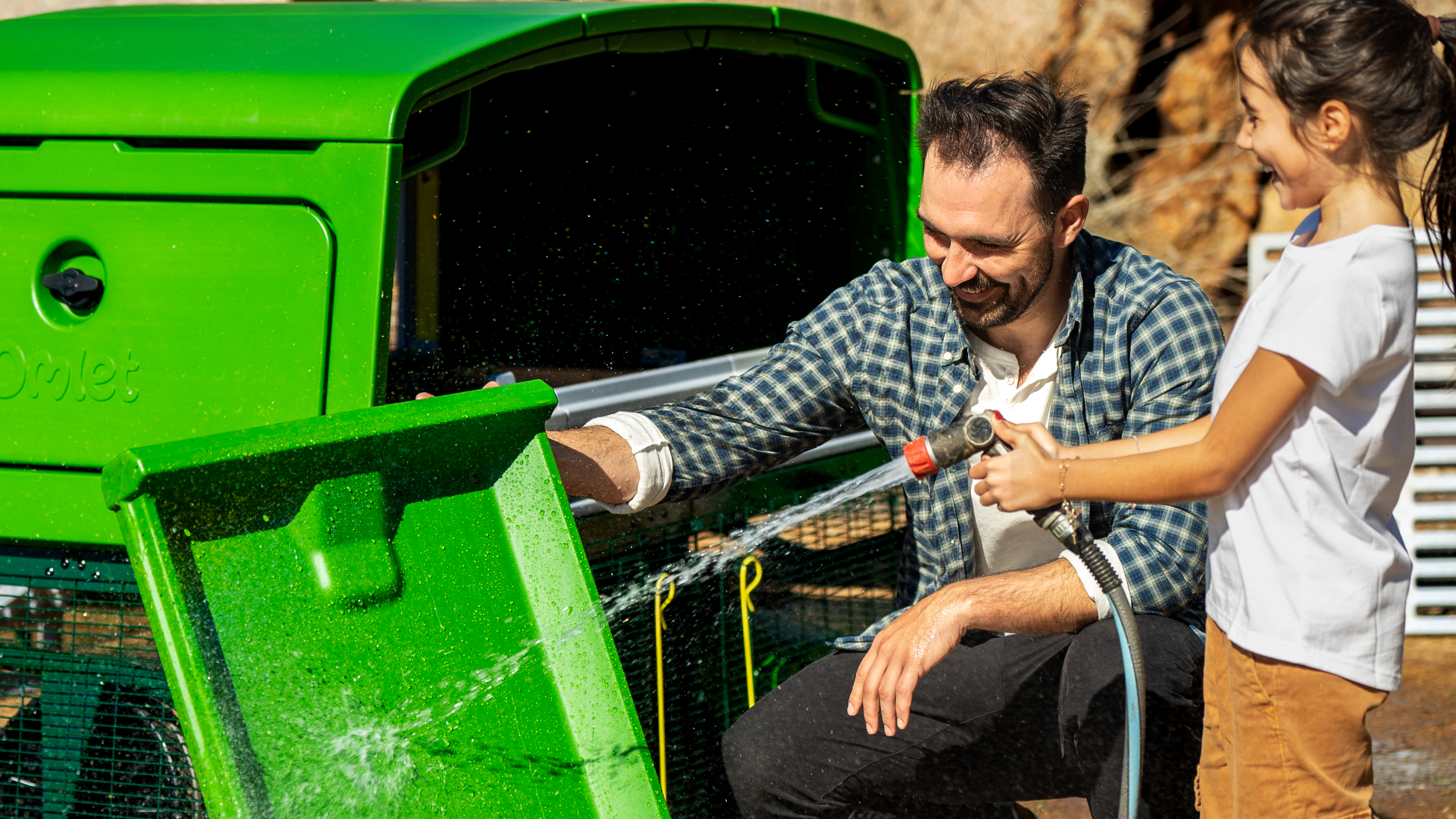
The Eglu Pro chicken coop's hoseable, wipe down surfaces make it super easy to clean.
How to help your chickens keep clean
Aside from providing your flock with a proper dust bath, there are a few other things you can do to help them look and feel their best. Adding chicken run covers will help keep mud at a minimum, and keep your chickens dry during rain or snow showers. If your chickens have grazed all of the grass inside of their run, add substrate like hemp, fine gravel, pine pellets, or artificial turf with adequate drainage to help keep their run fresh. Change or clean the substrate every month or two, depending on which type you choose.
Offer your hens plenty of perching space within the run to give them variety, and to keep their feet clean and dry. The customizable PoleTree is a great way to utilize aerial run space and to give your hens a clean place to perch. Chicken treat dispensers are also helpful in keeping the floor of the run free of debris, and to reduce the amount of food waste.
Change the bedding in the nesting box as needed. Your hens shouldn’t be roosting in their nesting area, so the bedding should remain relatively clean. Scoop out any droppings and replace bedding whenever necessary to keep your eggs and your hens’ skirts clean.
How to wash a chicken
Most of the time chickens that appear to be dirty can be gently wiped down with a soft rag to remove droppings or other debris. Bathing them in water should be done only if absolutely necessary. Reasons to bathe your chickens include:
- Mud or debris matted feathers in breeds such as Silkies, Brahmas, or Cochins
- When their vents are impacted or coated with feces
- If a veterinarian has deemed it medically necessary, such as in egg bound hens, wound treatments, or other ailments
If you’re faced with a hen in need of a bath, care must be taken. It’s not natural for chickens to be submerged in water, so the process can easily stress them. Here are the steps to take when bathing a chicken:
- Fill a deep basin or sink with warm water, deep enough to cover your hen’s legs
- Using a toothbrush or other soft bristled brush, gently scrub your chicken’s legs, feet, and any other soiled areas, taking care to move in the direction of their feathers and not against them
- If soap is needed, use unscented dish soap or baby shampoo
- Pour fresh warm water over the washed areas, or use a kitchen sprayer on low until the soap and debris are removed
- Remove your hen from the water and wrap it in a towel
- Using a cotton ball or q-tip, gently wipe their beak, comb, wattles, and around their nostrils to remove any dust or dirt
- Unless it’s a moderate temperature outside, keep your chicken indoors until they’re dry
If your chicken becomes stressed at any point during the bathing process, stop and hold them until they have calmed down.
Omlet and your flock
Our hygienic and easy to clean chicken coops and chicken runs means less time spent cleaning, and more time enjoying the company of your hens. And, with the addition of our unique and functional chicken toys and accessories, your flock will feel their best and their run will look better than ever.



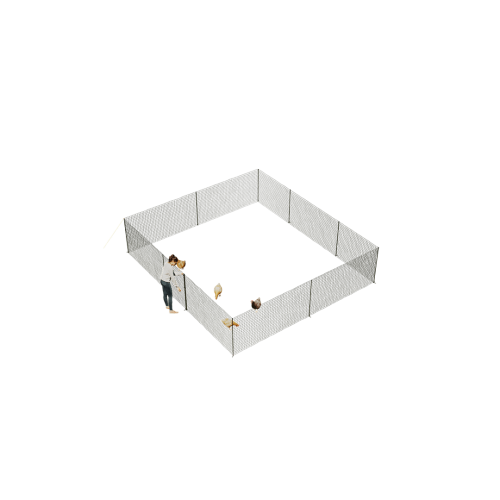
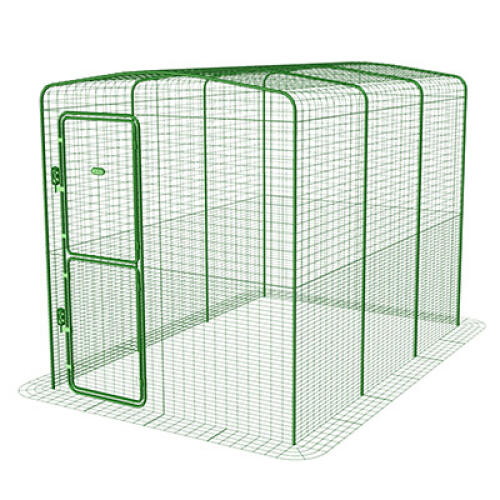
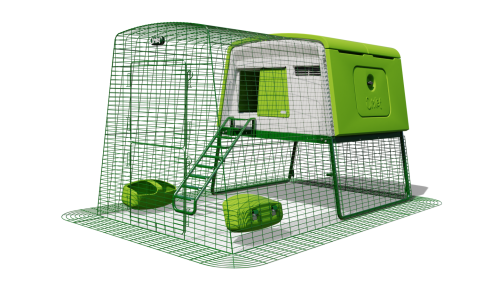
Comments
There are no comments just yet